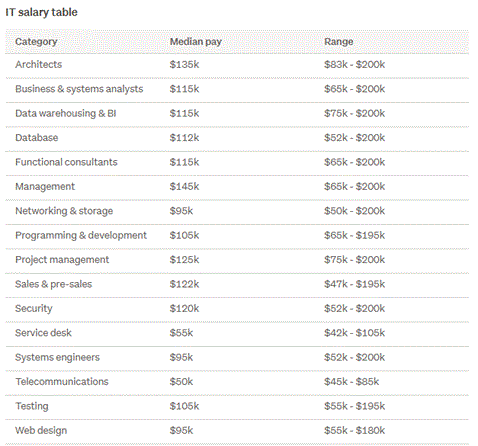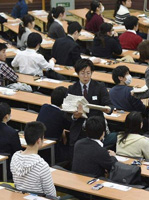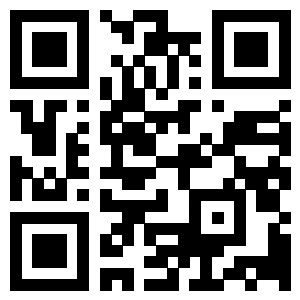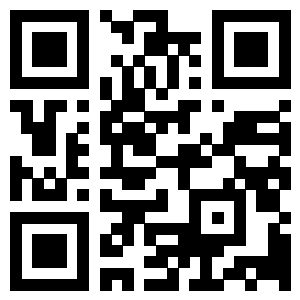2013年6月英语六级快速阅读与简答真题解析
2013年6月大学英语六级考试已结束,新东方在线第一时间收集整理试题及参考答案,以下是2013年6月英语六级快速阅读与简答真题解析供考生参考。
每年四六级考试结束都是几家欢喜几家愁。其实,通过真题的分析与比较,今年英语六级考试的快速阅读和简答题部分比往年要略简单一点。虽然今年仍然采用"多题多卷"的形式来考察,但是,阅读考试依旧是年年岁岁题相似,岁岁年年人不同。
先纵观一下简答题部分。以下就两套最新考题做答案解析和考点点评,希望对6月参加考试的考生以及下一轮备考同学有所帮助。
简答题(一)讲的是"音乐家的培养"问题
Highly proficient musicianship is hard won. Although it's often assumed musical ability us inherited, there's abundant evidence that this isn't the case. While it seems that at birth virtually everyone has perfect pitch, the reasons that one child is better than another are motivation and practice.(47)
Highly musical children were sung to more as infants and more encouraged to join in song games as kids than less musical ones, long before any musical ability could have been evident. Studies of classical musicians prove that the best ones practiced considerably more from childhood onwards than ordinary orchestral players, and this is because their parents were at them to put in the hours from a very young age.
The same was true of children selected for entry to specialist music schools, compared with those who were rejected. The chosen children had parents who had very actively supervised music lessons and daily practice from young ages, giving up substantial periods of leisure time to take the children to lessons and concerts.(48)
The singer Michael Jackson's story, although unusually brutal and extreme, is illumination when considering musical prodigy(天才). Accounts suggest that he was subjected to cruel beatings and emotional torture ,and that he was humiliated (羞辱) constantly by his father, What sets Jackson's family apart is that his father used his reign of terror to train his children as musicians and dancers.(49)
On top of his extra ability Michael also had more drive. This may have been the result of being the closest of his brothers and sisters to his mother. "He seemed different to me from the other children - special," Michael's mother said of him. She may not have realized that treating her son as special may have been part of the reason be became like that.(50)
(51)All in all, if you want to bring up a Mozart or Bach, the key factor is how hard you are prepared to crack the whip. Thankfully, most of us will probably settle for a bit of fun on the recorder and some ill-executed pieces of music-on the piano from our children.
47. According to the author, a child's musical ability has much to do with their_______ .
48.In order to develop the musical ability of their children, many parents will accompany them during their practice sacrificing a lot of their own______ .
49. Because of their father's pressure and strict training, Michael Jackson and some of his brothers and sisters eventually became ______.
50. Michael's extra drive for music was partly due to the fact that he was___by his mother.
51.To bring up a great musician like Mozart or Bach, willingness to be strict with your
child is _______.
【参考答案】:
47. motivation and practice
48. leisure time
49. musicians and dancers
50. treated as special
51.the key factor
简答题(二)讲的是上世纪70年代的美国石油危机
Oil is the substance that lubricates the world's economy. Because so many of our modern technologies and services depend on oil, nations, corporations, and institutions that control the trade in oil exercise extraordinary power. (47)The "energy crisis" of 1973-1974 in the United States demonstrated how the price of oil can affect U.S. government policies and the energy-using habits of the nation.(48)
By 1973, domestic U.S. sources of oil. were peaking, and the nation was importing more of its oil, depending on a constant flow from abroad to keep cars on the road and machines running. In addition, at that time a greater percentage of homes and electrical plants were run on petroleum than today. Then, in 1973,the predominantly Arab nations of the Organization of Petroleum Exporting Countries (OPEC) resolved to stop selling oil to the United States. The move was prompted by OPEC's desire to raise prices by restricting supply and by its opposition to U.S. support of Israel in the Arab-Israeli Yom Kippur War. The embargo (禁运) created panic in the West and caused oil prices to shoot up.(49) Short-term oil shortages drove American consumers to wait in long lines at gas pumps.
In response to the embargo, the U.S. government enforced a series of policies designed to reduce reliance on foreign oil. (50)These included developing additional domestic sources (such as those on Alaska's North Slope), resuming extraction at sites that had been shut down because of cost inefficiency, capping the price that domestic producers could charge for oil, and beginning to import oil from a greater diversity of nations. The government also established a stockpile (贮存) of oil as a short-term buffer (缓冲) against future shortages. (51)Stored underground in large salt caves in Louisiana, this stockpile is called the Strategic Petroleum Reserve, and currently contains over 600 million barrels of oil, roughly equivalent to one month's supply.
47.We learn from the passage that in today's world, whoever monopolizes the oil market will be able to _______.
48.Oil prices may exert influence not only on American government policies but on how energy________.
49.Besides the sharp increase in oil prices, OPEC's 1973 oil embargo caused _______.
50.Over the years before the OPEC's embargo America had depended heavily on _______.
51.As a measure to counter future shortages, the American government decided to _______ in caves underground.
【参考答案】:
47. exercise extraordinary power
48. is used in the nation
49. panic in the West
50. foreign oil
51. establish a stockpile of oil
纵观两篇考题,历年的考点规律依旧非常明显,上课讲过的顺序原则,答案几乎照抄原则尽显无疑。当然,每年都有1-2题考查大家的综合能力,比如简答一的50和简答二的48,都需要同学进行一定程度的改写,但是相信,经过上海新东方学校培训的学员,处理今年这些题目拿到4题的分数是相当容易的。
接下来咱们一起来看看快速阅读部分。本次快速阅读的文章还是中规中矩考查 "7+3"(七道选择题,三道句子填空)的考查方式。在上海新东方六级强化班和冲刺班的课堂上,我们就反复强调过,对待快速阅读这个部分应该根据每道题题干里的关键词,结合顺序原则,加逼性质,从简单到难依次返回原文搜寻答案。接下来帮大家分析一下最新的考题:
Welcome,Freshmen. Have an iPod.
Taking a step that many professors may view as a bit counterproductive, some colleges and universities are doling out Apple iPhones and Internet-capable iPods to their students.(1)
The always-on Internet devices raise some novel possibilities, like tracking where students gather together. With far less controversy, colleges could send messages about canceled classes, delayed buses, campus crises or just the cafeteria menu.
While schools emphasize its usefulness -online research in class and instant polling of students, for example - a big part of the attraction is, undoubtedly, that the iPhone is cool and a hit with students. Being equipped with one of the most recent cutting-edge IT products could just help a college or university foster a cutting-edge reputation.
Apple stands to win as well, hooking more young consumers with decades of technology purchases ahead of them. The lone losers, some fear, could be professors.
(3)Students already have laptops and cell phones, of course, but the newest devices can take class distractions to a new level. They practically beg a user to ignore the long-suffering professor struggling to pass on accumulated wisdom from the front of the room - a prospect that teachers find most irritating and students view as, well, inevitable.
"When it gets a little boring, I might pull it out," acknowledged Naomi Pugh, a first-year student at Freed-Hardeman University in Henderson, Term., referring to her new iPod Touch, which can connect to the Internet over a campus wireless network.(4)She speculated that professors might try even harder to make classes interesting if they were to compete with the devices.
(5)Experts see a movement toward the use of mobile technology in education, though they say it is in its infancy as professors try to come up with useful applications. Providing powerful hand?held devices is sure to fuel debates over the role of technology in higher education.
"We think this is the way the future is going to work," said Kyle Dickson, co-director of re?search and the mobile learning initiative at Abilene Christian University in Texas, which has bought more than 600 iPhones and 300 iPods for students entering this fall.
Although plenty of students take their laptops to class, they don't take them everywhere and would prefer something lighter. Abilene Christian settled on the devices after surveying students and finding that they did not like hauling around their laptops, but that most of them always carried a cell phone, Dr. Dickson said.
It is not clear how many colleges and universities plan to give out iPhones and iPods this fall; officials at Apple were unwilling to talk about the subject and said that they would not leak any institution's plans.
"We can't announce other people's news,"said Greg Joswiak, vice president of iPod and iPhone marketing at Apple. He also said that he could not discuss discounts to universities for bulk purchases.
At least four institutions - the University of Maryland, Oklahoma Christian University, Abilene Christian and Freed-Hardeman - have announced that they will give the devices to some or all of their students this fall.
Other universities are exploring their options. Stanford University has hired a student-run company to design applications like a campus map and directory for the iPhone. It is considering whether to issue iPhones but not sure it, necessary, noting that more than 700 iPhones were registered on the university's network last year.
At the Massachusetts Institute of Technology, iPhones might already have been everywhere, if AT&T, the wireless carrier offering the iPhone in the United States, had a more reliable network, said Andrew Yu, mobile devices platform project manager at M.I.T.
"We would have probably gone ahead with this, maybe just getting a thousand iPhones and giving them out," Mr. Yu said.
(6)The University of Maryland at College Park is proceeding cautiously, giving the iPhone or iPod Touch to 150 students, said Jeffrey Huskamp, vice president and chief information officer at the university. "We don't think that we have all the answers," Mr. Huskamp said. By observing how students use the gadgets, he said, "We're trying to get answers from the students."
At each college, the students who choose to get an iPhone must pay for mobile phone service. Those service contracts include unlimited data use. Both the iPhones and the iPod Touch devices can connect to the Internet through campus wireless networks. With the iPhone, those networks may provide faster connections and longer battery life than AT&T's data network. Many cell phones allow users to surf the Web, but only some newer ones are capable of wireless connection to the local area computer network.
University officials say that they have no plans to track their students (and Apple said it would not be possible unless students give their permission).(7) They say that they are drawn to the prospect of learning applications outside the classroom, though such lesson plans have yet to surface.
"My colleagues and I are studying something called augmented reality (a field of computer research dealing with the combination of real-world and virtual reality)," said Christopher Dede, professor in learning technologies at Harvard University. "Alien Contact," for example, is an exercise developed for middle-school students who use hand-held devices that can determine their location. As they walk around a playground or other area, text, video or audio pops up at various points to help them try to figure out why aliens were in the schoolyard.
"You can imagine similar kinds of interactive activities along historical lines," like following the Freedom Trail in Boston, Professor Dede said. "It's important that we do research, so that we know how well something like this works."
The rush to distribute the devices worries some professors, who say that students are less likely to participate in class if they are multi-tasking. (8)"I'm not someone who's anti-technology, but I,m always worried that technology becomes an end in and of itself, and it replaces teaching or it replaces analysis,,' said Ellen Millender, associate professor of classics at Reed College in Portland, Ore. (She added that she hoped to buy an iPhone for herself once prices fall.)
Robert Summers, who has taught at Cornell Law School for about 40 years, announced this week - in a detailed, footnoted memorandum -that he would ban laptop computers from his class on contract law.
"I would ban that too if I knew the students were using it in class," Professor Summers said of the iPhone, after the device and its capabilities were explained to him. (9)"What we want to encourage in these students is an active intellectual experience, in which they develop the wide range of complex reasoning abilities required of good lawyers."
The experience at Duke University may ease some concerns. A few years ago, Duke began giving iPods to students with the idea that they might use them to record lectures (these older models could not access the Internet).
"We had assumed that the biggest focus of these devices would be consuming the content," said Tracy Futhey, vice president for information technology and chief information officer at Duke.
But that is not all that the students did. They began using the iPods to create their own "content," making audio recordings of themselves and presenting them. (10)The students turned what could have been a passive interaction into an active one, Ms. Futhey said.
1. Many professors think that giving out Apple iPhones or Internet-capable iPods to students
A)updates teaching facilities in universities
B)has started a revolution in higher education
C)can facilitate teacher-student interaction
D)may not benefit education as intended
2. In the author's view, being equipped with IT products may help colleges and universities
A)build an innovative image
B)raise their teaching efficiency
C)track students'activities
D)excite student interest in hi-tech
3. The distribution of iPhones among students has raised concerns that they will_________ .
A)induce students to buy more similar products
B)increase tension between professors and students
C)further distract students from class participation
D)prevent students from accumulating knowledge
4. Naomi Pugh at Freed-Hardeman University speculated that professors would_________ .
A)find new applications for iPod Touch devices
B)have to work harder to enliven their classes
C)have difficulty learning to handle the devices
D)find iPhones and iPods in class very helpful
5. Experts like Dr. Kyle Dickson at Abilene Christian University think that________ .
A)mobile technology will be more widely used in education
B)the role of technology in education cannot be overestimated
C)mobile technology can upgrade professors' teaching tool-kit
D)iPhones and iPods will replace laptops sooner or later
6. What do we learn about the University of Maryland at College Park concerning the use of iPhones and iPods?
A) It has sought professors' opinions.
B) It has benefited from their use.
C) It is trying to follow the trend.
D) It is proceeding with caution.
7. University officials claim that they dole out iPhones and iPods so as to_________ .
A)encourage professors to design newer lesson plans
B)help improve professor-student relationships
C)facilitate students' learning outside of class
D)stimulate students' interest in updating technology
8.Ellen Millender at Reed College in Portland is concerned that technology will take the place of_____.
9.Professor Robert Summers at Cornell Law School banned laptop computers from his class because he thinks qualified lawyers need to possess a broad array of_____.
10.The experience at Duke University may ease some concerns because the students have used iPods for active_____.
这是一篇讨论ipod等电子产品是否应该融入课堂的议论文。经过上海新东方学校六级培训的考生知道,一定要依照文章顺序,上下按图索骥,从简单到难去做此题---做题顺序为:1-》2 -》10 -》9 -》 8-》 4-》3 -》5 -》6 -》7 。千万不要在一棵树上面挂死,这样依照这个文章难度来判断,答对本篇阅读中的八成题目还是相对容易的。
【参考答案】:
1. D. may not benefit education as intended
2. A. build an innovative image
3. C. further distract students from class participation
4. B. have to work harder to enliven their classes
5. A. mobile technology will be more widely used in education
6. D. It is proceeding with caution.
7. C. facilitate students' learning outside of class
8. teaching or analysis
9. complex reasoning abilities
10.interaction
对历年真题比较熟悉的考生也会发现,在快速阅读中定位句几乎是将文章等分。因此结合各种上课教过的技巧,辅以同学们主动的练习,相信今年的六级快速阅读和简答题一定让你做得很满意。
- 相关阅读
TOPS
- 日排行/
- 周排行/
- 原创
- 日排行/
- 周排行/
- 原创
- 1 无锡学院2022年6月英语六级准考证打印入口|时间:6月1日
- 2 2022年6月英语四级作文热门话题及范文:教育不公平
- 3 泰州学院2022年6月英语六级准考证打印入口|时间:6月1日
- 4 吉林四级考试时间2022年上半年
- 5 2022年6月英语四级作文热门话题及范文:网络游戏
- 6 宿迁学院2022年6月英语六级准考证打印入口|时间:6月1日
- 7 2022年6月英语四级作文热门话题及范文:电力短缺
- 8 苏州城市学院2022年6月英语六级准考证打印入口|时间:6月1日
- 9 2022年6月英语四级作文热门话题及范文:手机的利弊
- 10 常熟理工学院2022年6月英语六级准考证打印入口|时间:6月1日







